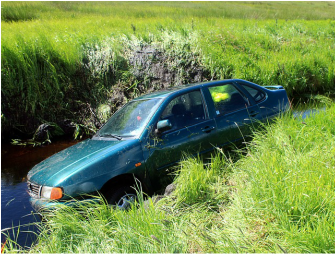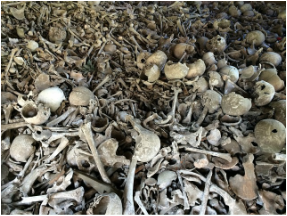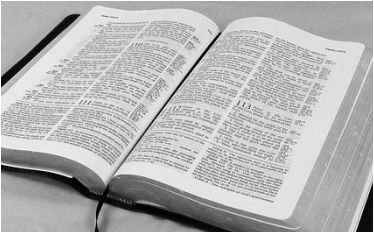|
In today’s lesson, God sends Jeremiah to address the grievous sin of child sacrifices. Jeremiah Chapter 19 Lessons from the text The Recklessness of Sinners Everybody knows that if you take a sharp knife and run it against your skin, you will hurt yourself. If you drive a car eighty miles an hour around sharp curves with a creek nearby, you run an obvious risk of spinning out or losing control and thus winding up in the creek. Any sane person understands these risks and will avoid them. Only the reckless charge forward without the common sense to recognize and respond to potential danger. Consider: is God a god of life or death? Life. Does God wish anyone to die? No. In fact, God told Adam to keep away from the one thing that would bring death into his life (Gen. 2:16-17). If God does not wish death to be in humanity’s life, how do you think He responds to one person causing the death of another? He rejects that action so strongly that He made it the sixth commandment (Exo. 20:13). Everyone acknowledges that if you willing bring about the death of another human being, then you have, rather directly or indirectly, killed that person. So, if you willingly bring about the death of your child, then you have killed your child and sinned against God by breaking His sixth commandment. Everyone should be in agreement up to this point. However, they are not. Sin has made people so reckless that they do not even realize the danger to which they are exposing themselves and their children. Causing your child to be burned alive as an offering to a false god is, in their eyes, an act of service to that god. They cannot recognize that they are killing their children. They cannot recognize that they are spilling the blood of innocents. Just as if they are recklessly driving around curves too fast, such people are charging straight into danger, pilling upon themselves the blood of their children. Offering your child as a sacrifice and expecting a blessing is as foolish and reckless as driving a knife into your chest and expecting to live. The fact that people in the past have done so to their children illustrates the point that sin so confuses the mind that it causes people to perform ludicrously wicked acts without expecting any judgment from God because they honestly believe that they are not doing wrong. Sin truly makes you reckless. Verse by Verse Commentary 1 Since Jeremiah has just preached about Israel being clay in the Lord’s hands (18:1-17), taking a potter's bottle is a reminder to the people that God can and will destroy that which is marred to make it anew. Jeremiah is to bring the elders of the priests and people as witnesses and support for his task. Such is prudent considering that Jeremiah's life is being threatened (Jer. 11:21, 18:18). 2 God once again commands Jeremiah to perform an action and upon the prophet’s obedience will declare to him a message. See Jeremiah 18:2. 3-6 This particular prophecy is against the valley of Tophet. There, the Jews have been offering their children as burnt sacrifices to idols. Passing through the fire is not a wave offering but the literal burning to death of one’s child. Such is a grievous sin in the eyes of God, for one is spilling the blood of innocent children in the name of a man-made god. Therefore the Lord calls child sacrifice what it is: slaughter. 7 The reference to the counsel of Judah means that the people have been supportive of the gross sin of child sacrifices. Despite their efforts to cause the valley to thrive, God will ensure that the place and the idolaters are destroyed. It is a disgrace to become food for the birds as it means that one has been denied the respect of a proper burial but has instead been left out to decompose. 8-9 Since the people willingly sacrifice their children to idols, God decrees that their famine will be so terrible that the people will resort to eating their children to survive. This judgment has already happened in Samaria and is now being prophesied against Tophet (II Ki. 6:24-29). The fact that parents would resort to such cannibalism exposes the lack of sacrificial love that mothers and fathers should have towards their children. That is, the people’s hearts have grown so cold that they will stoop to any means to survive. Such is why all who pass by the city will hiss at it. 10 The Lord commanded Jeremiah to bring the potter’s vessel in verse 1, and mid-way through the sermon Jeremiah is to break it as the climax to the judgment prophesy. 11-13 While Jeremiah’s first message involving the potter’s vessel was a message of destruction for rebirth (18:4-6), this second message is destruction with no hope of recovery. The nation of the Jews will be kept in tact throughout time, but individual cities and person will be utterly destroyed by the Lord for their sins. 14-15 After proclaiming the sins of the people of and the judgment of God against nearby Tophet, Jeremiah returns to the Jerusalem to proclaim its fate. The people are as guilty as those who live in Tophet because they have willingly taken their children there to be offered as burnt offerings. Despite the message of the prophets, they have continued in this gross idolatry, stiffing their necks so that they will not turn to face God. Noteworthy is that unlike Tophet, God does not proclaim that Jerusalem will be broken beyond repair but will instead suffer all the judgments that have been prophesied through Isaiah, Jeremiah, and the other true prophets of God. ___________________ Thank you for your faithfulness in studying God’s word. Please comment below to share what you learned from today's lesson.
0 Comments
Leave a Reply. |
Devotional Categories
All
Archives
September 2023
|
|
Join my mailing list!
|
Thank you!You have successfully joined our subscriber list. |
|
© 2024 Melissa Beaty
|
